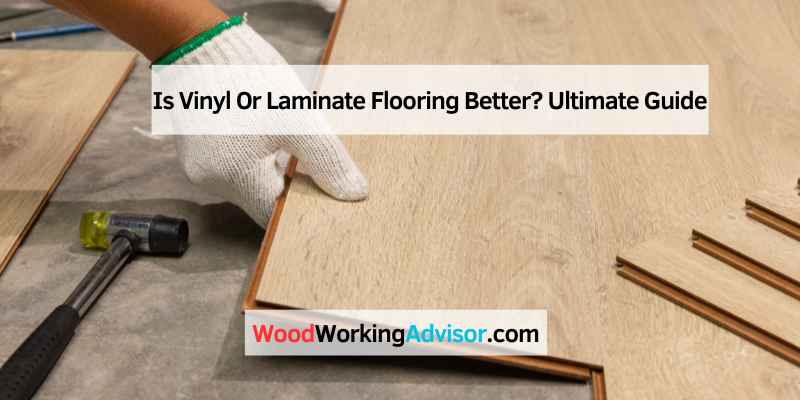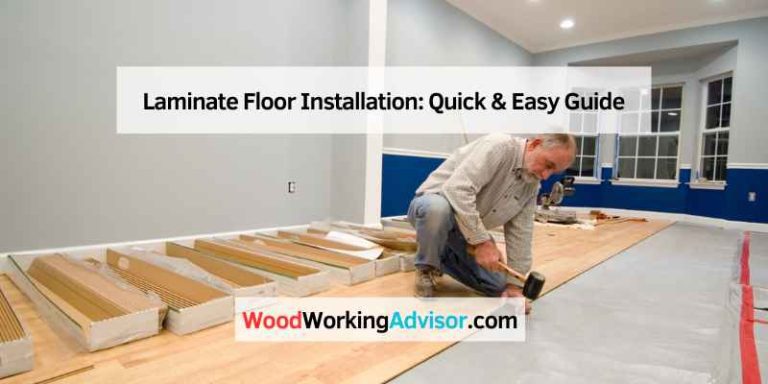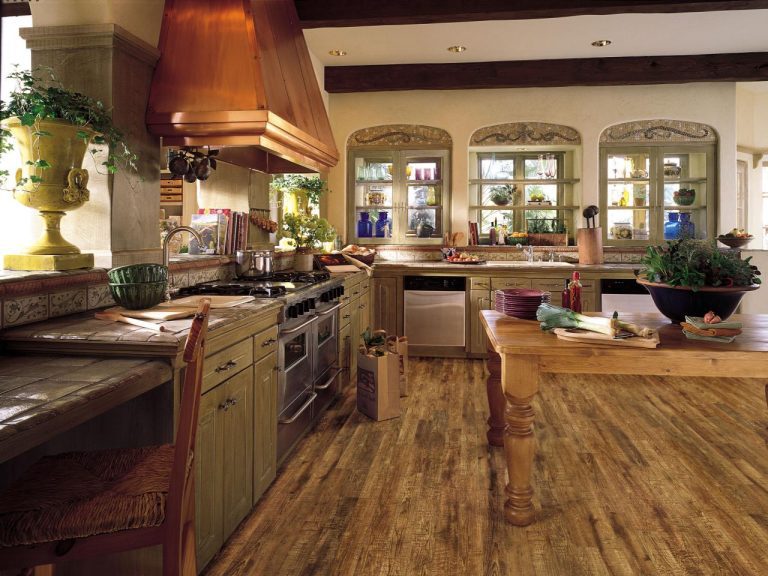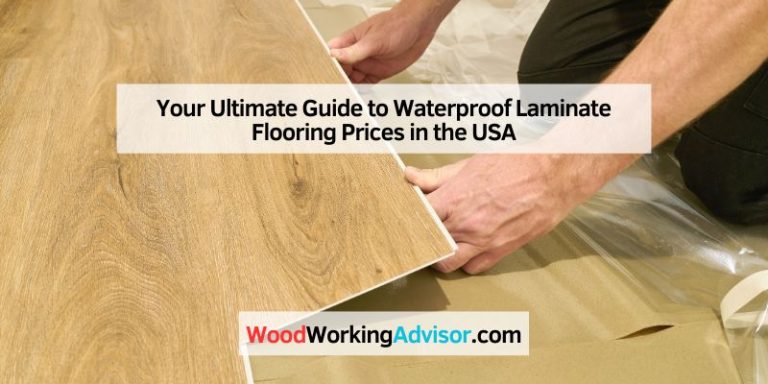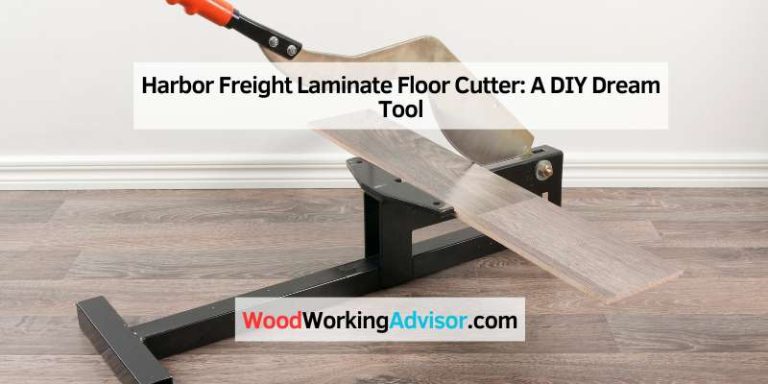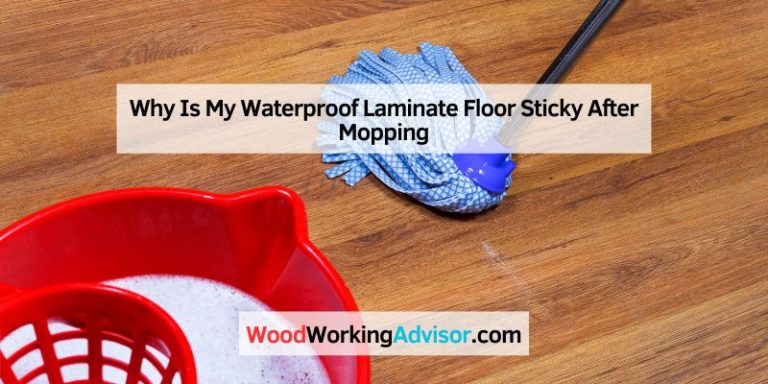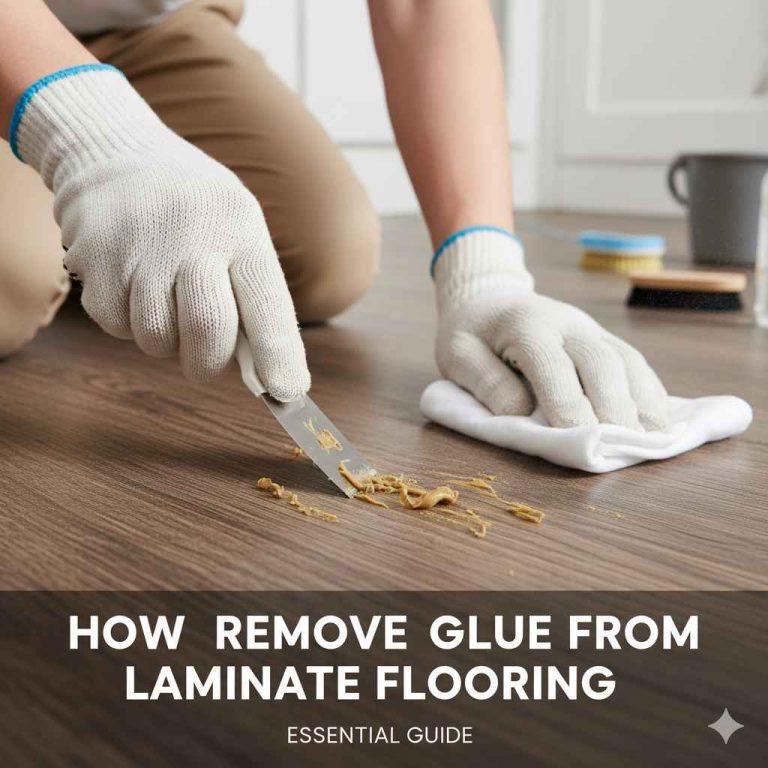Is Vinyl Or Laminate Flooring Better? Ultimate Guide
Vinyl and laminate flooring both have their advantages. Laminate is more resistant to scratches and dents, while vinyl is more resistant to water damage, making it better for high-moisture environments like bathrooms and kitchens.
When considering these two types of flooring, it’s important to keep in mind these differences to make an informed decision for your space. Vinyl and laminate flooring are popular choices for homeowners due to their durability and affordability. However, understanding the specific benefits of each type of flooring is crucial in making the right decision for your home.
We will delve into the key differences between vinyl and laminate flooring to help you determine which option is better suited to your needs. Whether you’re looking for scratch resistance, water resistance, or ease of maintenance, we’ll explore the unique qualities of both vinyl and laminate flooring to guide you in making an informed choice for your space.
Introduction To Vinyl And Laminate Flooring
Vinyl and laminate flooring are both popular options, but which one is better? When it comes to scratch resistance, laminate floors are more durable, while vinyl is better at withstanding water damage. Ultimately, the choice between the two depends on your specific needs and preferences.
The Rise Of Synthetic Flooring
Vinyl and laminate flooring have gained tremendous popularity in recent years, revolutionizing the flooring industry with their synthetic composition and impressive durability. As an affordable and versatile alternative to traditional hardwood, these synthetic flooring options have become a top choice for homeowners and commercial spaces alike.
Vinyl Vs. Laminate: The Core Differences
When comparing vinyl and laminate flooring, it’s essential to understand their core differences. While both offer cost-effective and low-maintenance solutions, they have distinct characteristics that cater to specific needs and preferences.
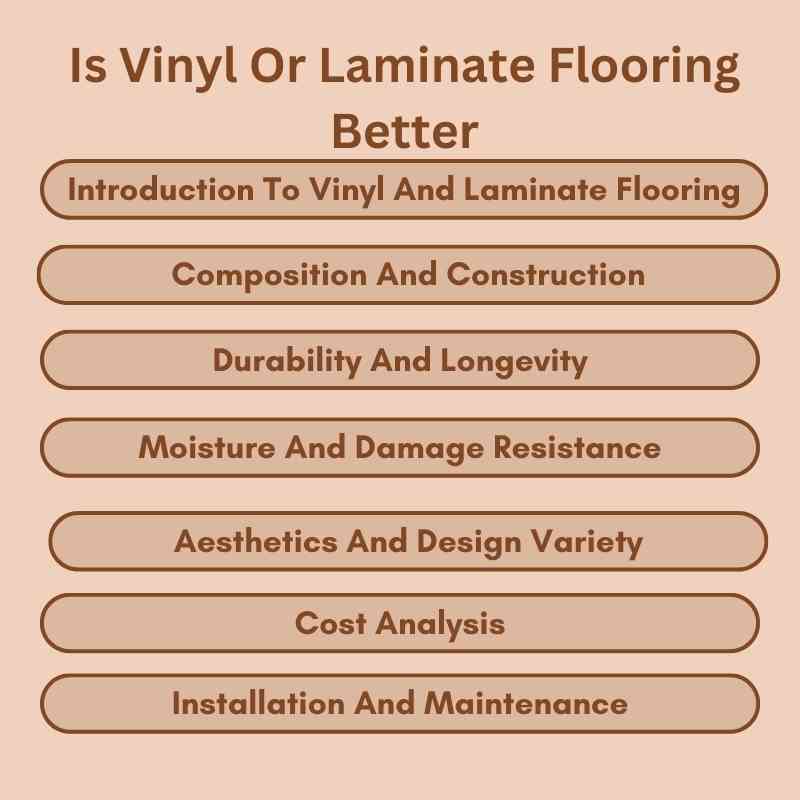
Composition And Construction
When deciding between vinyl and laminate flooring, it’s important to consider the differences in their composition and construction. While laminate floors are more resistant to scratches and dents, vinyl flooring is better at withstanding water damage. Understanding these distinctions can help you choose the best option for your specific needs.
Layers Of Vinyl Flooring
Vinyl flooring is made up of multiple layers, each serving a specific purpose. The top layer is the wear layer, which protects the flooring from scratches, stains, and fading. The next layer is the print layer, which gives the flooring its design and color. The core layer is the thickest layer and provides the flooring with stability and durability. Lastly, the backing layer provides additional support and prevents moisture from seeping through.
Layers Of Laminate Flooring
Laminate flooring is also composed of layers, but the layers differ from those of vinyl flooring. The top layer is the wear layer, which protects the flooring from scratches, dents, and fading. The next layer is the design layer, which gives the flooring its appearance. The core layer is made of high-density fiberboard, which provides the flooring with stability and durability. Lastly, the backing layer provides additional support and prevents moisture from seeping through.
When it comes to composition and construction, both vinyl and laminate flooring have unique layers that contribute to their overall durability and functionality. Understanding the layers of each type of flooring can help you make an informed decision when deciding which type of flooring is best for your home.
Durability And Longevity
When it comes to choosing between vinyl and laminate flooring, one of the key factors to consider is their durability and longevity. Both types of flooring are designed to withstand wear and tear, but there are some important differences to keep in mind.
Scratch And Dent Resistance
Laminate flooring is known for its scratch and dent resistance. The top layer of laminate is made from a hard, durable material that can withstand daily use and abuse. This makes laminate a great option for high-traffic areas such as entryways, hallways, and living rooms. It is less prone to scratches and dents caused by furniture, pets, or heavy foot traffic.
On the other hand, vinyl flooring also offers a good level of scratch resistance. Vinyl planks or tiles are typically made with a wear layer that protects the surface from scratches and scuffs. While it may not be as resistant as laminate, vinyl can still hold up well in most residential settings.
Lifespan Comparisons
When it comes to lifespan, both vinyl and laminate flooring can provide long-lasting performance. Laminate flooring is known to have a lifespan of 15 to 25 years, depending on the quality of the product and the level of maintenance. With proper care and maintenance, laminate can easily withstand the test of time.
Vinyl flooring, on the other hand, can have a longer lifespan. High-quality vinyl flooring can last up to 20 to 30 years or even more, making it a durable choice for homeowners. It is important to note that the lifespan of vinyl flooring can be influenced by factors such as the thickness of the wear layer, the quality of installation, and the level of foot traffic.
Overall, both vinyl and laminate flooring offer good durability and longevity. However, laminate flooring tends to have better scratch and dent resistance, while vinyl flooring can have a longer lifespan. It is important to consider your specific needs and preferences when making a decision between the two.
Moisture And Damage Resistance
Vinyl and laminate flooring both offer moisture and damage resistance, but there are some differences to consider. Laminate floors are more resistant to scratches and dents, while vinyl flooring is more resistant to water damage. Ultimately, the choice between the two will depend on your specific needs and preferences.
Vinyl In High-moisture Areas
When it comes to moisture and damage resistance, vinyl flooring emerges as a top contender. Vinyl flooring is highly resilient and can withstand high levels of moisture without warping or buckling. This makes it an ideal choice for areas prone to spills, such as kitchens, bathrooms, laundry rooms, and basements. With its water-resistant properties, vinyl flooring provides peace of mind, knowing that it can handle the inevitable moisture that comes with these spaces.
Waterproof Features Of Laminate
While vinyl flooring is known for its moisture resistance, laminate flooring has also made advancements in providing waterproof features. Laminate flooring now comes with waterproof coatings that protect the core material from water damage. However, it is important to note that laminate flooring is not completely waterproof and may still be susceptible to damage if exposed to excessive moisture for extended periods.
When comparing the moisture and damage resistance of vinyl and laminate flooring, it is clear that vinyl takes the lead in high-moisture areas. Its superior ability to withstand moisture makes it the preferred choice for environments where spills and humidity are common.
Additionally, vinyl flooring offers other advantages in terms of damage resistance. It is more resistant to scratches and dents compared to laminate flooring. Vinyl’s durability ensures that it can withstand the wear and tear of everyday life, making it a great option for busy households or commercial spaces.
On the other hand, laminate flooring may be more prone to damage from heavy loads and sharp objects. It is important to handle laminate flooring with care to prevent any potential damage.
In conclusion, when considering the moisture and damage resistance of vinyl and laminate flooring, vinyl is the clear winner, especially in high-moisture areas. Its ability to withstand water and moisture without compromising its integrity makes it a reliable choice for spaces prone to spills and humidity.
Aesthetics And Design Variety
When it comes to aesthetics and design variety, both vinyl and laminate flooring offer a wide range of options to suit different styles and preferences. While laminate floors are more resistant to scratches and dents, vinyl flooring is more resistant to water damage, making it a better choice for areas with higher humidity levels.
Aesthetics and Design Variety is an important factor to consider when choosing between vinyl and laminate flooring. Both options offer a wide range of styles, colors, and patterns to suit any design preference. However, there are some differences to note when it comes to the visual appeal of these flooring options. Let’s take a closer look at the styles available for each.
Visual Appeal Of Vinyl
Vinyl flooring has come a long way in terms of design variety. It can now mimic the look of natural materials such as wood, stone, and tile, with realistic textures and patterns. Vinyl is available in a range of colors, from light neutrals to bold and vibrant hues. It can also be cut into various shapes and sizes, allowing for unique and creative designs.
Laminate Flooring Styles
Laminate flooring also offers a wide variety of styles and designs. It can replicate the look of hardwood, ceramic tile, and natural stone. Laminate is available in many different colors and patterns to suit any decor style. It’s worth noting that laminate typically has a more uniform look than vinyl, with less variation in texture and pattern.
In conclusion, both vinyl and laminate flooring offer a diverse range of styles and designs to choose from. When it comes to aesthetics and design variety, it ultimately comes down to personal preference. Whether you prefer the realistic textures and unique shapes of vinyl or the uniform look of laminate, both options can provide a stylish and functional flooring solution for your home.
Cost Analysis
Evaluate the long-term costs when deciding between vinyl and laminate flooring. While both have their benefits, laminate is more resistant to scratches and dents, whereas vinyl is better at withstanding water damage. Consider your specific needs and lifestyle to make the best choice for your home.
Price Comparison
When considering vinyl vs. laminate flooring, it’s crucial to analyze the cost aspect. Premium vinyl flooring may have a higher initial cost compared to laminate. However, the long-term benefits and durability often justify the initial investment.
Value For Money
Premium vinyl flooring offers exceptional value for money due to its durability, stability, and resistance to moisture. Unlike laminate, vinyl can withstand heavy traffic and high-moisture areas, making it a versatile and long-lasting flooring option.
In terms of cost, while vinyl flooring may be initially more expensive than laminate, its superior quality and longevity make it a worthwhile investment in the long run.
In summary, when comparing vinyl and laminate flooring, the cost analysis leans towards premium vinyl due to its durability, longevity, and overall value for money.
Installation And Maintenance
When choosing between vinyl and laminate flooring, it’s important to consider the differences in installation and maintenance. While laminate floors are more resistant to scratches and dents, vinyl flooring is more durable and stable, making it a better choice for high-moisture environments such as bathrooms and kitchens.
Ease Of Installation
When comparing vinyl and laminate flooring, the ease of installation is a crucial factor to consider. Vinyl flooring is known for its simple installation process, often featuring click-and-lock mechanisms that make it a popular choice for DIY enthusiasts.
Cleaning And Upkeep
Cleaning and maintaining vinyl and laminate flooring is relatively straightforward. Both types of flooring can be cleaned with a damp mop and mild detergent. However, it’s essential to avoid excessive water exposure with laminate flooring, as it can cause damage to the core material.
Repair And Replacement Considerations
When considering repair and replacement, it’s important to note that laminate flooring is more resistant to scratches and dents, while vinyl flooring is better at resisting water damage. Each has its own advantages depending on the specific needs of the space.
Repairing Vinyl Flooring
Vinyl flooring is easy to repair with vinyl patching compound to fill in any damaged areas. For larger tears or holes, a professional repair may be necessary.
Replacing Laminate Planks
When it comes to laminate flooring, individual planks can be easily replaced by unlocking the surrounding pieces and sliding in a new plank.
Environmental Impact And Health Concerns
Vinyl and laminate flooring both have their advantages and disadvantages when it comes to environmental impact and health concerns. While laminate floors are more resistant to scratches and dents, vinyl flooring is more resistant to water damage. However, it’s important to consider factors such as durability, maintenance, and the specific needs of your space before making a decision.
Eco-friendliness
Vinyl flooring is typically less eco-friendly than laminate due to its synthetic composition.
Laminate flooring often contains recycled materials and is considered more sustainable.
Indoor Air Quality
Vinyl flooring may emit volatile organic compounds (VOCs), impacting indoor air quality.
Laminate flooring with low-VOC options can help maintain better indoor air quality.
Choosing The Right Flooring For Your Home
When deciding between vinyl and laminate flooring for your home, it’s important to consider their specific advantages. While laminate floors offer superior scratch and dent resistance, luxury vinyl plank (LVP) flooring is more adept at withstanding water damage. Understanding these differences will help you choose the right flooring option for your specific needs.
Assessing Room Usage
When it comes to choosing the right flooring for your home, it’s important to assess the usage of each room. Vinyl and laminate flooring have their own unique advantages and disadvantages that make them suitable for certain areas of your home. For instance, vinyl flooring is best for rooms with higher humidity levels, such as the kitchen, bathroom, laundry room, or basement, while laminate is better suited for low-moisture areas like bedrooms, living rooms, and hallways.
Making The Final Decision
Before making the final decision, it’s important to consider your budget, lifestyle, and personal preferences. Both vinyl and laminate flooring are cost-effective options that offer durability and easy maintenance. However, vinyl is more durable and stable, resistant to moisture and climate, and easy to install and maintain. On the other hand, laminate is scratch-resistant and can add value to your home. Ultimately, it comes down to your specific needs and preferences.
When choosing the right flooring for your home, it’s important to take your time and weigh the pros and cons of each option. By considering the usage of each room, your budget, and personal preferences, you can make an informed decision that will enhance the aesthetic and functionality of your space.
Pros And Cons Summary
When deciding between vinyl and laminate flooring, there are pros and cons to consider. Laminate flooring is more resistant to scratches and dents, while vinyl is more resistant to water damage. Premium vinyl is more durable and stable than laminate, but it comes at a higher cost.
Ultimately, the choice depends on your specific needs and preferences.
Advantages Of Vinyl
- Vinyl flooring is highly durable and resistant to scratches, dents, and stains, making it ideal for high-traffic areas.
- It is also water-resistant, making it suitable for areas prone to moisture such as bathrooms, kitchens, and basements.
- Vinyl flooring is easy to clean and maintain, requiring simple regular sweeping and occasional mopping.
- It is available in a wide range of designs, patterns, and colors, allowing you to achieve the desired aesthetic for your space.
- Vinyl flooring is relatively affordable compared to other flooring options, providing a cost-effective solution for homeowners.
- Installation of vinyl flooring is quick and easy, with options for self-adhesive tiles or planks, as well as click-lock systems.
Advantages Of Laminate
- Laminate flooring is highly resistant to scratches and dents, making it a durable option for busy households.
- It is also more resistant to moisture compared to solid wood flooring, making it suitable for areas with moderate humidity levels.
- Laminate flooring offers a wide variety of designs, including realistic wood and stone patterns, allowing you to achieve the desired look.
- Installation of laminate flooring is relatively easy, with options for click-lock systems that require minimal tools and expertise.
- Laminate flooring is a more cost-effective option compared to solid wood or natural stone flooring, providing a budget-friendly solution.
- It is also a more environmentally friendly choice, as it is made from composite wood materials rather than solid wood.
Overall, when choosing between vinyl and laminate flooring, it is important to consider factors such as durability, water resistance, design options, maintenance, cost, and ease of installation. Vinyl flooring is a great choice for areas with high moisture levels and heavy foot traffic, while laminate flooring is suitable for areas with moderate humidity and offers a wide variety of design options at a more affordable price point. Ultimately, the decision depends on your specific needs and preferences.
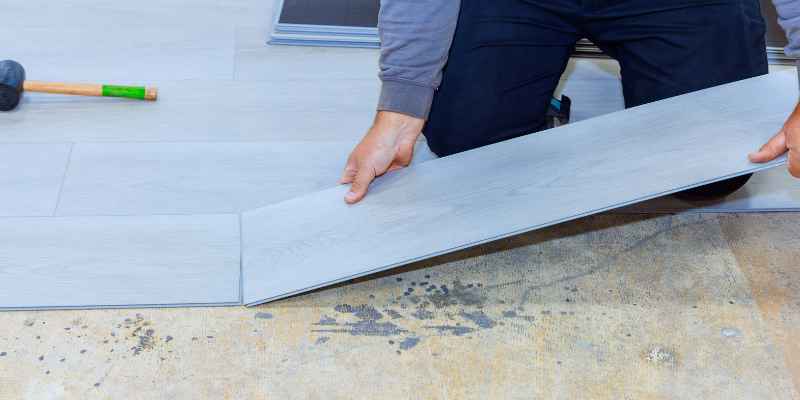
Expert Insights And User Reviews
Discover the expert insights and user reviews on whether vinyl or laminate flooring is better. While laminate floors are more resistant to scratches and dents, luxury vinyl plank (LVP) flooring is more resistant to water damage. Both options have their advantages and disadvantages, so it’s important to consider your specific needs and preferences before making a decision.
Expert Insights
When it comes to choosing between vinyl and laminate flooring, it’s important to consider the insights from flooring professionals. These experts have extensive knowledge and experience in the industry, making their recommendations invaluable. Here are some professional flooring recommendations to help you make an informed decision:
1. Durability: Both vinyl and laminate flooring are known for their durability, but laminate tends to be more resistant to scratches and dents. This makes it a great option for high-traffic areas or homes with pets and children.
2. Water Resistance: While laminate flooring can withstand some moisture, vinyl flooring is more resistant to water damage. Vinyl is an excellent choice for areas prone to spills, such as kitchens and bathrooms.
3. Installation: Both vinyl and laminate flooring are relatively easy to install, but vinyl often has the advantage of being more forgiving when it comes to uneven subfloors. It can be installed as a floating floor or glued down, depending on your preference.
4. Maintenance: Vinyl flooring is generally easier to maintain compared to laminate. It can be easily cleaned with a damp mop or cloth, and it is resistant to stains. Laminate flooring requires regular sweeping and occasional deep cleaning to maintain its appearance.
User Reviews
Real user experiences provide valuable insights into the performance and satisfaction of vinyl and laminate flooring. Here are some user reviews highlighting the pros and cons of each type:
1. Vinyl Flooring:
– Many users appreciate vinyl flooring for its water resistance, making it ideal for bathrooms and kitchens.
– Users also mention the durability of vinyl, noting that it withstands heavy foot traffic and remains in good condition for years.
– Some users mention that vinyl flooring can be easily installed as a DIY project, saving on installation costs.
– However, a few users mention that vinyl flooring can show scratches and dents over time, especially in high-traffic areas.
2. Laminate Flooring:
– Users praise laminate flooring for its scratch and stain resistance, making it a suitable choice for households with pets and children.
– Many users mention that laminate flooring offers a wide range of design options, allowing them to achieve the desired aesthetic for their space.
– Some users highlight the affordability of laminate flooring, making it a cost-effective option for budget-conscious homeowners.
– However, a few users mention that laminate flooring can be prone to water damage if not properly maintained or installed in areas with high moisture levels.
Overall, both vinyl and laminate flooring have their advantages and considerations. It’s essential to assess your specific needs, preferences, and budget before making a decision. Consulting with flooring professionals and considering real user experiences can help you make an informed choice that suits your requirements.
Frequently Asked Questions
What Lasts Longer, Vinyl Or Laminate?
Vinyl flooring lasts longer than laminate flooring. Vinyl is more durable and resistant to wear and tear, making it a better choice for high-traffic areas. It is also more resistant to water damage compared to laminate.
Which Is More Scratch Resistant, Vinyl Or Laminate Flooring?
Laminate flooring is more scratch-resistant than vinyl flooring. Both types of flooring are designed to resist wear and tear, but laminate floors are more durable against scratches and dents. On the other hand, vinyl flooring is more resistant to water damage.
Laminate flooring is also better suited for areas with less exposure to moisture.
What Is The Disadvantage Of Vinyl Flooring?
Vinyl flooring can be easily damaged by heavy loads and sharp objects, making it less durable than other materials. Repairing vinyl flooring is challenging, often requiring complete replacement.
What Costs More, Vinyl Or Laminate Flooring?
Vinyl flooring costs more than laminate flooring due to its durability, moisture resistance, and easy maintenance.
Conclusion
When considering vinyl or laminate flooring, it’s crucial to weigh the benefits and drawbacks of each. While laminate is more resistant to scratches and dents, vinyl excels in withstanding water damage. Ultimately, the choice between the two will depend on your specific needs and preferences for your space.

